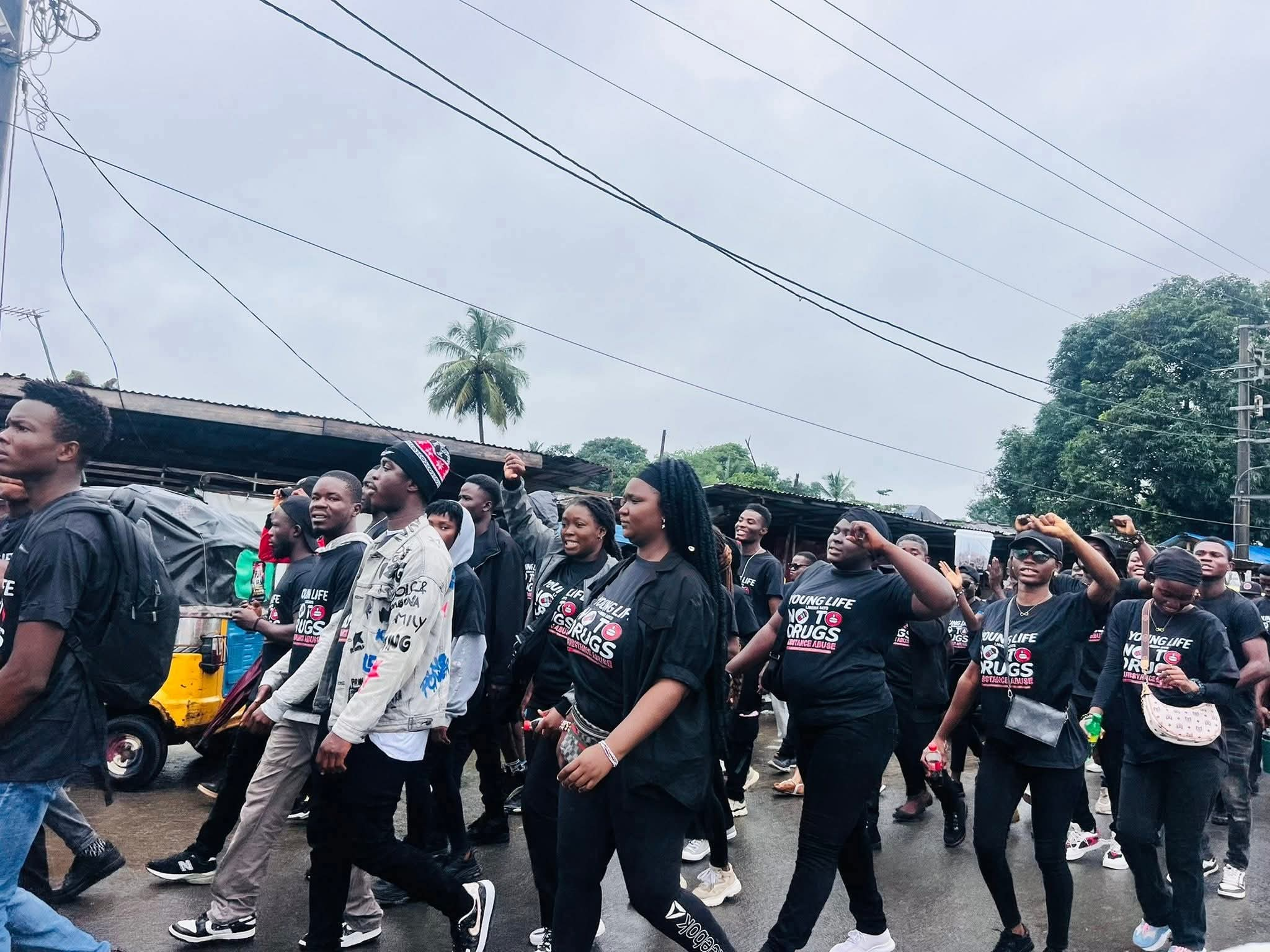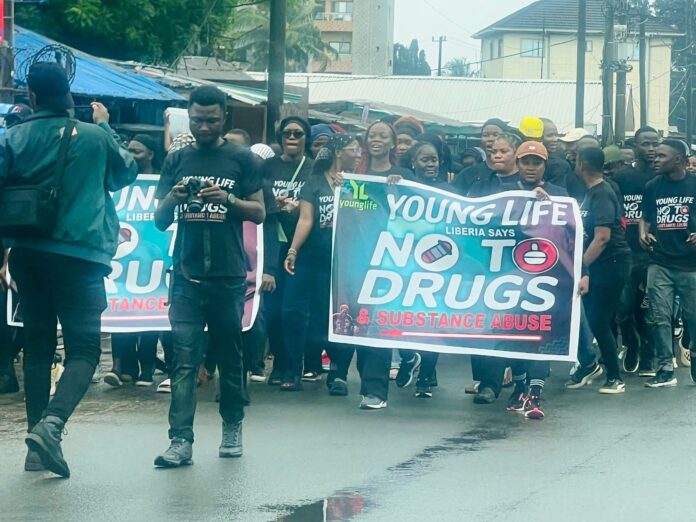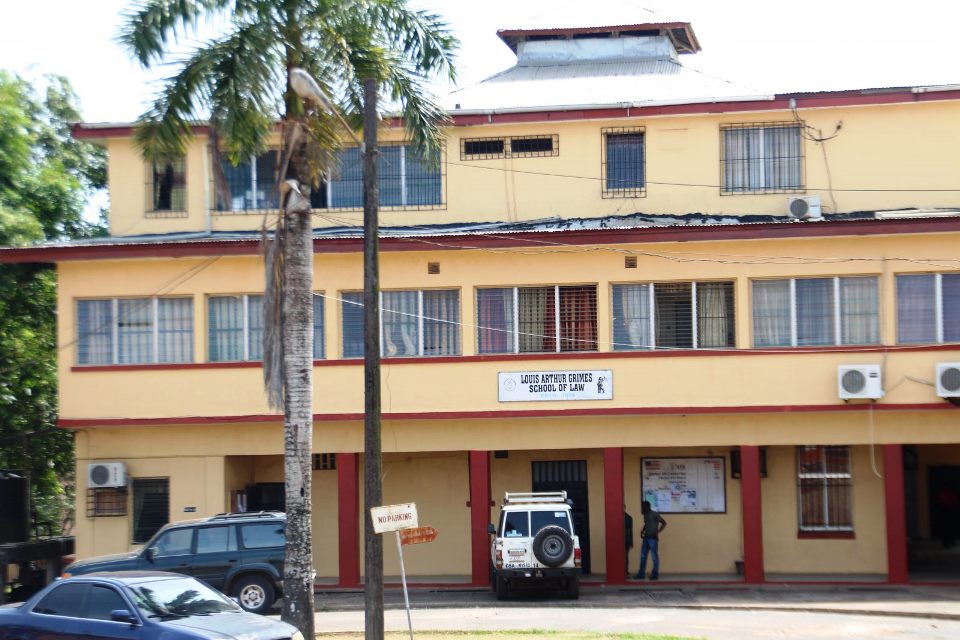Hundreds of Liberians took to the streets of Monrovia on Thursday to express their frustration and grief over the country’s escalating drug epidemic.
Dressed in black and chanting slogans such as “We Are Tired of Kush,” “Say No to Drugs,” and “No More Zombies,” the protesters urged the government to take decisive action against the spread of illicit drugs and the growing addiction crisis that is devastating communities.
Liberia Public Radio correspondent in Monrovia reported that the protest was part of the “Say No to Drugs” campaign and garnered widespread support from civil society groups, student organizations, and youth networks. Many demonstrators were family members of young people struggling with addiction—often referred to locally as “zogos,” a term for street-involved youth suffering from severe substance abuse.
“Our children are dying, and our communities ridicule us because our sons and daughters have become ‘zombies’ on the streets,” lamented one protester. “We need the government to treat this as a national emergency.”
The demonstration coincided with a visit from a delegation of the ECOWAS Parliament, led by Cape Verde’s Orlando Pereira Dias. Their presence highlighted a regional commitment to tackling the drug crisis through awareness and collaboration. The delegation met with affected youth and community leaders, reinforcing West Africa’s united front against drug abuse.
ECOWAS embrace campaign
The ECOWAS initiative marks a shift from mere symbolic gestures to tangible solutions, including cross-border collaboration and investment in treatment infrastructure. The August 7 protest served not only as a public outcry but also as a test of political resolve across the region.
The 14-year civil war in Liberia severely damaged the fabric of Liberian society, leading many young people to turn to illicit drug consumption.

As Liberia confronts this crisis, citizens and civil society are demanding more than just rhetoric—they want real policies that will protect future generations from the grip of addiction.
The campaign drew the attention of several high-profile Liberians, including the country’s Second Lady, Madam Stephine Dahn Koung, wife of the Vice President of Liberia, as well as several government officials and members of the legislature.






















